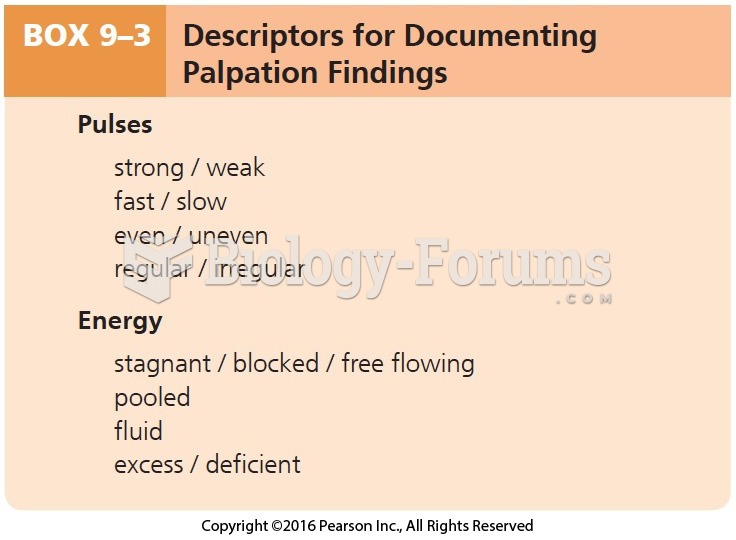|
|
|
Interferon was scarce and expensive until 1980, when the interferon gene was inserted into bacteria using recombinant DNA technology, allowing for mass cultivation and purification from bacterial cultures.
Liver spots have nothing whatsoever to do with the liver. They are a type of freckles commonly seen in older adults who have been out in the sun without sufficient sunscreen.
Vampire bats have a natural anticoagulant in their saliva that permits continuous bleeding after they painlessly open a wound with their incisors. This capillary blood does not cause any significant blood loss to their victims.
More than 34,000 trademarked medication names and more than 10,000 generic medication names are in use in the United States.
The first oral chemotherapy drug for colon cancer was approved by FDA in 2001.
 Computerized spirometry is used in medical office settings as well as in hospitals and other medical ...
Computerized spirometry is used in medical office settings as well as in hospitals and other medical ...
 Poverty rates have declined in the last 50 years, and the biggest decline has been for people 65 and ...
Poverty rates have declined in the last 50 years, and the biggest decline has been for people 65 and ...





